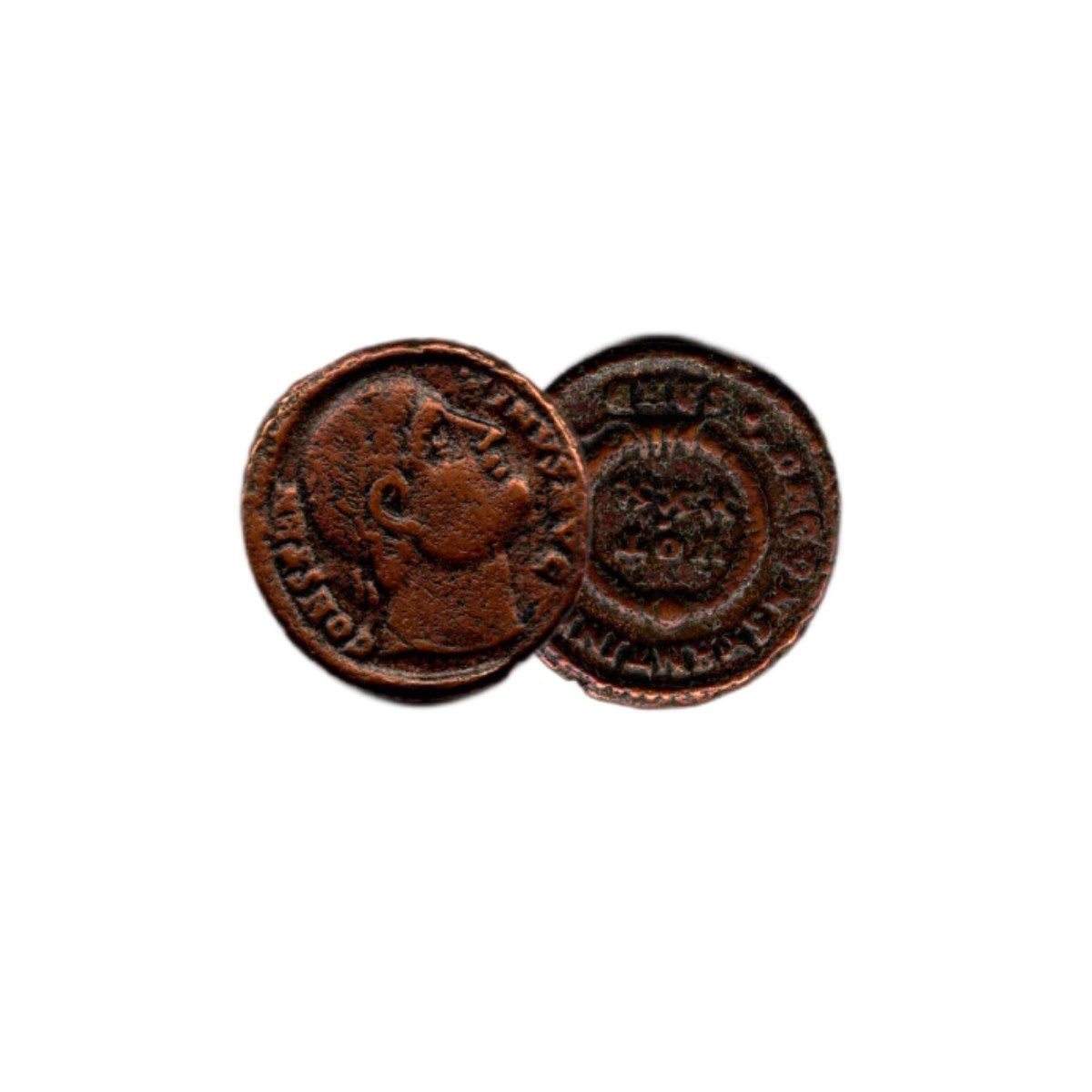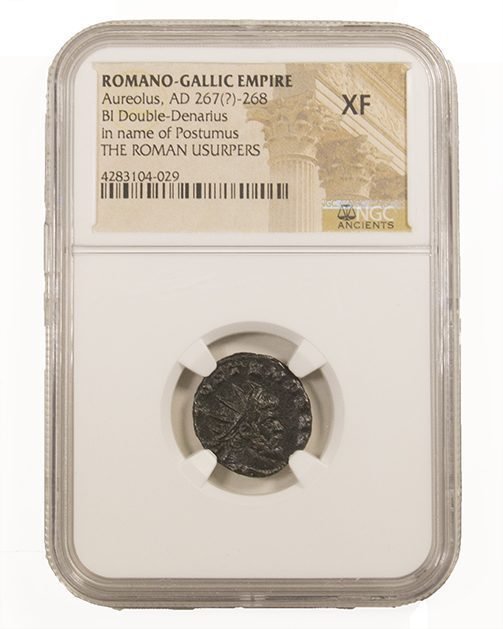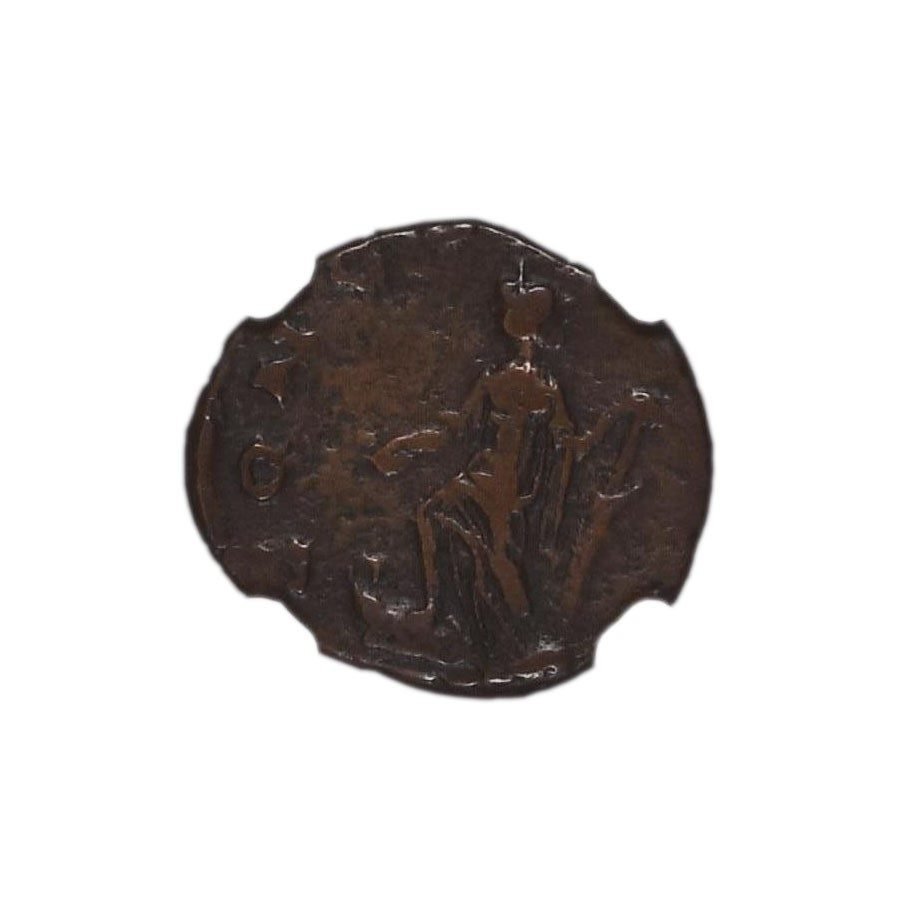Roman Silver Denarius Of Julia Domna (AD 193-217) NGC
Coins in images are examples. Not the actual coin.
Julia Domna—wife, Augusta, and primary advisor to Septimius Severus—working in a patriarchal system that officially excluded her from assuming absolute power, nevertheless managed to have her way. Unlike her predecessors, Julia Domna accompanied her husband on his military campaigns, and was known as the Lady of the Camp. The troops adored her, and she dispensed sage military advice. She bore Septimius two sons, Geta and Caracalla, who became co-emperors upon Septimius’ death in 211. After Geta was assassinated by his brother’s agents, Julia Domna served as Caracalla’s advisor until his own assassination in 217. When his enemy Macrinus became emperor, Julia Domna was unable to bear not being in control. Rather than surrender to the new emperor, she commited suicide by starvation.
Coins in images are examples. Not the actual coin.
Julia Domna—wife, Augusta, and primary advisor to Septimius Severus—working in a patriarchal system that officially excluded her from assuming absolute power, nevertheless managed to have her way. Unlike her predecessors, Julia Domna accompanied her husband on his military campaigns, and was known as the Lady of the Camp. The troops adored her, and she dispensed sage military advice. She bore Septimius two sons, Geta and Caracalla, who became co-emperors upon Septimius’ death in 211. After Geta was assassinated by his brother’s agents, Julia Domna served as Caracalla’s advisor until his own assassination in 217. When his enemy Macrinus became emperor, Julia Domna was unable to bear not being in control. Rather than surrender to the new emperor, she commited suicide by starvation.
Coins in images are examples. Not the actual coin.
Julia Domna—wife, Augusta, and primary advisor to Septimius Severus—working in a patriarchal system that officially excluded her from assuming absolute power, nevertheless managed to have her way. Unlike her predecessors, Julia Domna accompanied her husband on his military campaigns, and was known as the Lady of the Camp. The troops adored her, and she dispensed sage military advice. She bore Septimius two sons, Geta and Caracalla, who became co-emperors upon Septimius’ death in 211. After Geta was assassinated by his brother’s agents, Julia Domna served as Caracalla’s advisor until his own assassination in 217. When his enemy Macrinus became emperor, Julia Domna was unable to bear not being in control. Rather than surrender to the new emperor, she commited suicide by starvation.























